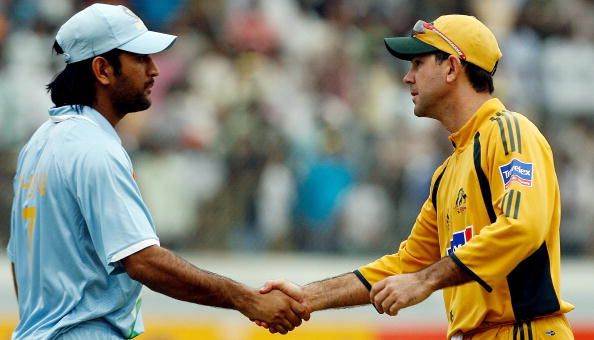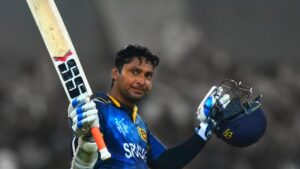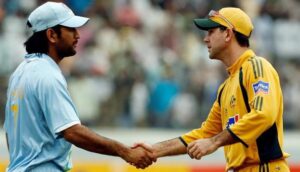Cricket is a game of strategy, skill, and mental strength, and nowhere is this more evident than in captaincy. A great captain does more than make field placements—they inspire teams, manage pressure, and make split-second decisions that can change the course of a match. The realm of captaincy has seen legends who have left indelible marks on cricket history. From strategic geniuses to inspirational leaders, these captains define how cricket teams perform under pressure.
In this blog, we explore the best cricket captains ever, their leadership styles, iconic moments, and why they are revered in the cricketing world.
1. Clive Lloyd – The West Indies Legend
Clive Lloyd is regarded as one of cricket’s most influential captains, leading the West Indies during their dominant era in the 1970s and 1980s.
- Leadership Style: Calm under pressure, he built a team of fierce and talented players who complemented each other perfectly.
- Iconic Moments: Led West Indies to two consecutive World Cup victories (1975 & 1979).
- Legacy: Lloyd’s ability to manage egos and inspire unity set the benchmark for leadership in world cricket.
Clive Lloyd demonstrated that strategic thinking combined with emotional intelligence can create legendary teams.
2. Imran Khan – Pakistan’s Inspirational Leader
Imran Khan transformed Pakistan cricket into a World Cup-winning powerhouse.
- Leadership Style: Charismatic and motivational, Khan led by example with his all-round performances.
- Iconic Moments: Captained Pakistan to their first-ever ICC Cricket World Cup in 1992, delivering crucial performances under pressure.
- Legacy: Known for instilling self-belief and resilience, Khan’s leadership elevated Pakistan to global cricket prominence.
Imran Khan remains a symbol of visionary captaincy and unwavering determination.
3. Ricky Ponting – Australia’s Aggressive Strategist
Ricky Ponting is synonymous with aggressive leadership and consistent success.
- Leadership Style: Assertive and fearless, Ponting led from the front, especially in challenging situations.
- Iconic Moments: Guided Australia to two ICC Cricket World Cup victories (2003 & 2007) and numerous Ashes triumphs.
- Legacy: Ponting’s strategic acumen and ability to inspire players to push their limits made Australia a dominant force.
Ponting epitomizes how confidence, aggression, and tactical brilliance can define a team’s winning culture.
4. Mahendra Singh Dhoni – India’s Cool Finisher
MS Dhoni, known as “Captain Cool”, redefined captaincy in modern cricket.
- Leadership Style: Calm under pressure, Dhoni mastered the art of decision-making in high-stakes situations.
- Iconic Moments: Led India to the 2007 T20 World Cup, 2011 ODI World Cup, and 2013 Champions Trophy.
- Legacy: His finishing abilities, trust in young talent, and calm demeanor inspired a generation of Indian cricketers.
Dhoni’s leadership shows that composure, strategy, and team empowerment are essential for modern captaincy.
5. Steve Waugh – Australia’s Mental Toughness Expert
Steve Waugh was known for building resilient teams and winning under pressure.
- Leadership Style: Tough and mentally strong, Waugh emphasized discipline and self-belief.
- Iconic Moments: Captained Australia to the 1999 Cricket World Cup victory and dominated Test cricket with mental fortitude.
- Legacy: Waugh instilled a winning mindset and mental resilience, creating a culture of success.
Steve Waugh’s leadership highlights that mental toughness and strategic clarity are as vital as cricketing skills.
6. Graeme Smith – South Africa’s Young Visionary
Graeme Smith became one of the most successful captains in cricket history at a young age.
- Leadership Style: Calm, calculated, and forward-thinking, Smith led by example with consistent batting performances.
- Iconic Moments: Captained South Africa for over a decade, leading the team to record-breaking Test series victories.
- Legacy: Smith proved that youthful energy combined with strategic insight can create enduring leadership impact.
Smith’s era demonstrates how long-term vision and team cohesion define modern captaincy.
7. Virat Kohli – Aggression Meets Passion
Virat Kohli represents modern cricket captaincy, blending intensity with performance.
- Leadership Style: Aggressive, passionate, and highly motivating, Kohli pushes players to give their best in every match.
- Iconic Moments: Led India to historic Test victories abroad and successful ICC campaigns.
- Legacy: Known for fitness-driven culture, discipline, and fearless approach, Kohli has inspired a new generation of cricketers.
Kohli’s captaincy reflects how passion, intensity, and modern strategies define contemporary cricket leadership.
8. Legendary Lessons from Great Captains
Across cricket history, the best captains share common traits:
- Strategic Vision: Ability to foresee game scenarios and adapt plans accordingly.
- Inspirational Leadership: Motivating players to exceed limits while maintaining team unity.
- Calm Under Pressure: Making crucial decisions even in tense moments.
- Trust in Talent: Giving young players opportunities and nurturing future leaders.
- Adaptability: Adjusting tactics to suit formats, conditions, and opponents.
These traits distinguish mere leaders from true cricketing legends.
Conclusion: The Realm of Captaincy
Cricket captaincy is more than a title—it is the soul of the team. Legends like Clive Lloyd, Imran Khan, Ricky Ponting, MS Dhoni, Steve Waugh, Graeme Smith, and Virat Kohli demonstrate that leadership combines strategy, inspiration, mental toughness, and adaptability.
The realm of captaincy has evolved over decades, reflecting the changing nature of cricket and the demands of modern formats. Great captains not only win matches but also shape cricketing culture, inspire generations, and create unforgettable moments.
In essence, the best leaders in cricket history embody the perfect balance of vision, courage, and charisma, defining the heartbeat of teams and leaving legacies that endure long after the final ball is bowled.






